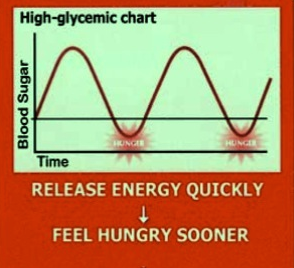Personalized diet plans have been a very important part of my practice for over 6 years now. Having done some personal experimentation with many different diets, including the paleo, ketogenic, vegan, GAPS, low FODMAP, and of course the Eating Alive Program, I have a lot of experience with diet strategies. Historically, I also encouraged the Healthy and Active Program, which is a personalized diet program developed in Europe many years ago, using 20 plus laboratory evaluations to provide a personalized eating plan. Further, I have studied Bernstein, Zone, Weight Watchers, Atkins along with many other popularized diet strategies, to help my clients determine the best diet for them.
In recent years I have a lot of people come into the office already on strict diets because they have heard that they are “healthy”. Many times I have seen them struggling to maintain a ketogenic or paleo diet, when clearly they need to have some starch and/or seasonal fruits. More often though I see people that clearly need to restrict or even eliminate starches and fruit, but are eating large amounts of these sugar rich foods. Restriction of starch and fruits is the foundation of glucose and fructose regulation in our bodies and a critical part of controlling our hormones, but certainly isn’t necessary for everyone. In recent microbiology and epigenetic studies, our tolerance to these foods seems more dictated by our gut bacteria and genes than anything else, and changes to our diet can actually change our genetics and microbiology faster than anyone thought possible.
Regardless of popular diet strategies, I take personal pride in being able to evaluate patient eating habits and lab results to guide someone in determining the best dietary strategy for them. Most of the time blood sugar and fasting insulin are the key lab evaluations to determine starch and fruit tolerance and help evaluate whether sugars, even in there natural form, are going to be able to be metabolized by the body. A standard lipid profile, including calculated LDL and triglycerides are also very important to help evaluate macronutrient intake limits. Other physicians and patients alike are amazed by the, often rapid, changes in a lipid profile when you simply follow the right diet. Genetics is another emerging area in the evaluation of specific dietary requirements with the study of nutrigenomics. Genetics can also help dictate macronutrient requirements as well, with variants in the APOE gene, for example. Couple this information to that of the microbiome, which is a large part of our epigenetic and hormonal tolerance to food and we can develop incredibly accurate dietary evaluations that are personally match to the individual.
So to the point. The following YouTube video is a must see for bringing personalized eating programs to the world. Using the latest technology of continuous blood glucose monitoring, along with other laboratory evaluations and microbiology this research has lead to the development of personalized eating programs that might be yummier than you think. The book is also a worthwhile read. The great thing about this program is that a lot of it can be figured out at home with a simple blood glucose monitor to look for spikes and dips in blood glucose after meals, along with food tracking. This team believes that these ups and downs in blood sugar are the critical thing to watch for when evaluating personal food tolerance, and in many ways I could not agree more!
Check it out!
More about this program may be found at the following website.
http://thepersonalizeddiet.com/
